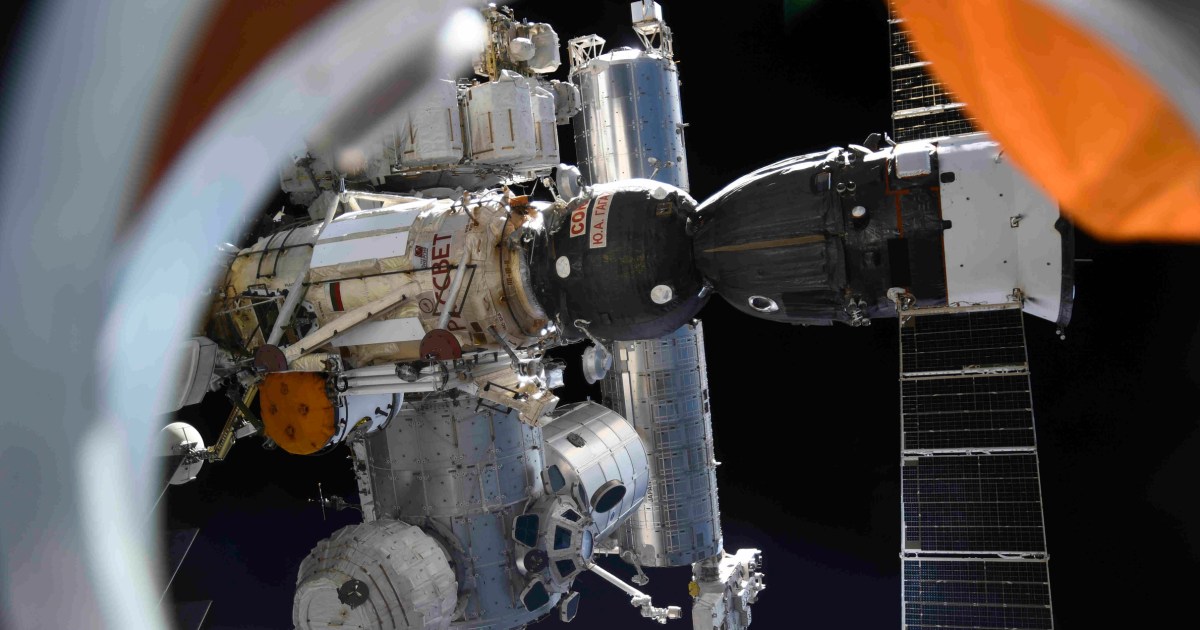Russia confirmed Tuesday that it conducted a missile test targeting an old space satellite, but rejected accusations from the United States and allies that it risked endangering astronauts aboard the International Space Station.
Moscow’s Ministry of Defense said in a statement that it had “successfully conducted a test” targeting a now-defunct Russian satellite that had been in orbit since 1982.
The United States branded the test “dangerous and irresponsible,” but Russia dismissed the suggestion.
On Monday astronauts aboard the ISS were forced to take shelter in a pair of space capsules after a cloud of space debris threatened to pass near the orbiting outpost.
“The U.S. knows for certain that the resulting fragments, in terms of test time and orbital parameters, did not and will not pose a threat to orbital stations, spacecraft and space activities,” Russia’s defense ministry said.
Foreign Minister Sergei Lavrov also said that Washington was guilty of “hypocrisy” with its claim Russia had posed a risk to peaceful activities in outer space.
At a briefing Monday, State Department spokesman Ned Price told reporters that “the Russian Federation recklessly conducted a destructive satellite test” he said had generated more than 1,500 pieces of “trackable orbital debris.”
“Russia’s dangerous and irresponsible behavior jeopardizes the long-term sustainability of outer space and clearly demonstrates that Russia’s claims of opposing the weaponization of space are disingenuous and hypocritical,” he added.
NASA Administrator Bill Nelson called the incident “unconscionable,” adding that the satellite fragments threaten the lives of all astronauts living and working in space, including the seven individuals at the International Space Station and three crew members aboard China’s Tiangong space station.
In a statement late Monday, Nelson said he was outraged by Russia’s actions.
“With its long and storied history in human spaceflight, it is unthinkable that Russia would endanger not only the American and international partner astronauts on the ISS, but also their own cosmonauts,” he said.
Criticism did not only come from the U.S., however.
NATO Secretary-General Jens Stoltenberg said the test was a “reckless act” that posed a threat to both the ISS and to an orbiting Chinese spacecraft.
Stoltenberg added that the missile test demonstrated Russia was developing new weapons systems.
A British government spokesperson also condemned the test and urged Moscow to join United Nations discussions on “responsible behavior when it comes to space,” according to Reuters.
This is not the first time such concerns have been raised, with U.S. Space Command accusing Moscow of conducting a “nondestructive test of a space-based anti-satellite weapon” in July of last year.
At the time, Gen. John “Jay” Raymond, Commander of U.S. Space Command, said the incident was “further evidence of Russia’s continuing efforts to develop and test space-based systems.”
A weapons test by China in 2007 also sparked outcry after resulting in a significant amount of debris.
Anti-satellite missile tests were also carried out by the U.S. in 2008 and by India in 2019 at significantly lower altitudes.
NASA and Russian space agency Roscosmos were the principal partners behind the construction of the ISS.
However, a deterioration in relations on earth appears to have extended into space.
Russia’s defense ministry said in its statement Tuesday that it had been forced to boost its defense capabilities in response to weapons tests by the U.S. and Washington’s decision to establish a space force in 2020.
It said Moscow had been calling for an agreement on space arms regulations for years and urged Washington to bring its concerns to the negotiating table.
Earlier this year, meanwhile, Russia and China agreed on plans to build a base on or around the moon after Moscow turned down a separate lunar project with the U.S.
Russia has also sought to outpace the U.S. in other kinds of space race, with the country beating NASA to shoot the first movie in orbit last month.
Denise Chow, Alan Kaytukov and Reuters contributed.





